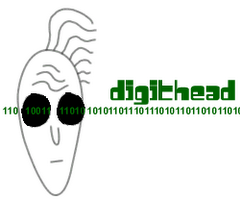Here's a quick and dirty recipe for getting started with MongoDB and Rails 3 using mongo_mapper. We'll get set up and test out a Restful web service.
I installed MongoDB with MacPorts.
sudo port selfupdate sudo port install mongodb
Start a rails project. You may want to leave out ActiveRecord using the switch --skip-active-record as suggested by the Getting Started guide. That's optional. You might want to leave it in, if you intend to use a relational DB alongside Mongo.
rails new <myproject>
Add to Gemfile
source 'http://gemcutter.org'
gem 'mongrel' gem 'mongo_mapper' gem 'bson' gem 'bson_ext' gem 'SystemTimer' gem 'rails3-generators' gem 'json'
Bundler happily installs all this stuff.
bundle install
Create config/initializers/mongodb.rb
MongoMapper.connection = Mongo::Connection.new('localhost', 27017)
MongoMapper.database = "#myapp-#{Rails.env}"
if defined?(PhusionPassenger)
PhusionPassenger.on_event(:starting_worker_process) do |forked|
MongoMapper.connection.connect if forked
end
end
Start the MongoDB server, giving it a place to put data files:
mkdir <path>/data mongod --dbpath <path>/data
Create an entity to be stored in MongoDB. I like to use a database of Nerds as my test application.
rails generate scaffold Nerd name:string description:string iq:integer --orm=mongo_mapper
I originally gave description type "text", but that didn't work for me, producing, "NameError in NerdsController#show, uninitialized constant Nerd::Text". So, I edited the model file to look like this:
class Nerd include MongoMapper::Document key :name, String key :description, String key :iq, Integer end
Getting mongodb objects as XML doesn't work?
I saw an error: undefined method `each' with mongo_mapper (0.8.6), which was fixed by upgrading to (0.9.0)
Started GET "/nerds/4dc5c41a1ff2367744000004.xml" for 127.0.0.1 at Sat May 07 15:41:54 -0700 2011
Processing by NerdsController#show as XML
Parameters: {"id"=>"4dc5c41a1ff2367744000004"}
Completed 200 OK in 9ms (Views: 2.6ms | ActiveRecord: 0.0ms)
Sat May 07 15:41:54 -0700 2011: Read error: #<NoMethodError: undefined method `each' for #<Nerd:0x1040bfb80>>
JSON web services in Rails
You'll likely want to serve up and accept JSON in HTTP requests. For some crazy reason, Rails doesn't generate code for JSON in the controller, only HTML and XML. You have to add a line to the respond_to code block, like this:
class NerdsController < ApplicationController
# GET /nerds
# GET /nerds.xml
def index
@nerds = Nerd.all
respond_to do |format|
format.html # index.html.erb
format.xml { render :xml => @nerds }
format.json { render :json => @nerds }
end
end
# GET /nerds/1
# GET /nerds/1.xml
def show
@nerd = Nerd.find(params[:id])
respond_to do |format|
format.html # show.html.erb
format.xml { render :xml => @nerd }
format.json { render :json => @nerds }
end
end
...
end
Use curl to test that this works. First, get HTML, then ask for JSON using the accept header.
curl --request GET -H "accept: application/json" http://localhost:3000/nerds/4dc5c41a1ff2367744000004
OK, now we can serve JSON, how about receiving it in POST requests? Another couple quick additions and we're in business.
# POST /nerds
# POST /nerds.xml
def create
@nerd = Nerd.new(params[:nerd])
respond_to do |format|
if @nerd.save
format.html { redirect_to(@nerd, :notice => 'Nerd was successfully created.') }
format.xml { render :xml => @nerd, :status => :created, :location => @nerd }
format.json { render :json => @nerd, :status => :created, :location => @nerd }
else
format.html { render :action => "new" }
format.xml { render :xml => @nerd.errors, :status => :unprocessable_entity }
format.json { render :json => @nerd.errors, :status => :unprocessable_entity }
end
end
end
curl --request POST -H "Content-Type: application/json" -H "Accept: application/json" --data '{"nerd":{"name":"Donald Knuth", "iq":199, "description":"Writes hard books."}}' http://localhost:3000/nerds
If you have an entity named "nerd" it's pretty reasonable to expect the XML representation to look something like <nerd>...</nerd>. By analogy to that, they expect your JSON to look like this {"nerd":{...}}, which I'm not sure I like. I coded around the issue, which is might be unwise, by making the controller's create method look like this:
# POST /nerds
# POST /nerds.xml
def create
input = params[:nerd] || request.body.read
if request.content_type == 'application/json'
@nerd = Nerd.new(JSON.parse(input))
else
@nerd = Nerd.new(input)
end
respond_to do |format|
if @nerd.save
format.html { redirect_to(@nerd, :notice => 'Nerd was successfully created.') }
format.xml { render :xml => @nerd, :status => :created, :location => @nerd }
format.json { render :json => @nerd, :status => :created, :location => @nerd }
else
format.html { render :action => "new" }
format.xml { render :xml => @nerd.errors, :status => :unprocessable_entity }
format.json { render :json => @nerd.errors, :status => :unprocessable_entity }
end
end
end
...which you can test with curl like so:
curl --request POST -H "content-type: application/json" --data '{"name":"Bozo", "iq":178, "description":"A very smart clown."}' http://localhost:3000/nerds
So, there you have it - Rails 3 and MongoDB playing ReSTfully together.
Warning: Current release versions of MongoDB have a 4MB maximum document size. This makes some sense as documents are often serialized and deserialized in memory. Apparently, this is being raised in later versions. Fully streaming APIs would certainly help, but that brings up the question of how much of the XML dog-pile of technologies will (or should) be replicated in JSON. Guess we'll see.









 R Bloggers
R Bloggers
thanks for the post!
ReplyDeletein rails -v
Rails 3.1.0.beta1
in Gemfile I have problems with
gem 'mongrel'
gem 'SystemTimer'
and change for this
gem 'mongrel', '>= 1.2.0.pre2'
#gem 'SystemTimer'
I actually prefer what you suggest too about reading from the body.
ReplyDelete